
You are reading:

You are reading:
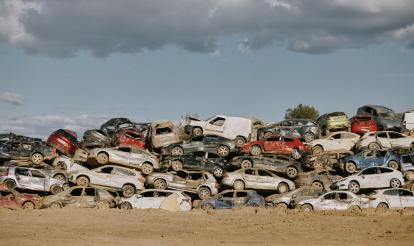
15.01.25
11 minutes readThe DANA (standing for Depresión Aislada en Niveles Altos in Spanish or “isolated high-level depression”), commonly known as a “cold drop”, which claimed over 200 lives in Valencia, has not only left behind destroyed homes, but has also had a severe emotional impact on the population. With the support of the ”la Caixa” Foundation, many social organisations are working on the ground to provide both material and psychological support to the people affected.
Ionela is a middle-aged woman. She has three children aged 16, 15 and 10. She lives with them and her husband in Catarroja, one of the towns hardest hit by the storm that swept through dozens of villages and claimed over 200 lives in Valencia on 29 October. Several months have passed, but her voice still breaks when asked how she is and how the disaster affected her: “I wish it would all be over, that it could be erased from my mind. I’ve been dreaming all week that my eldest daughter is drowning.”
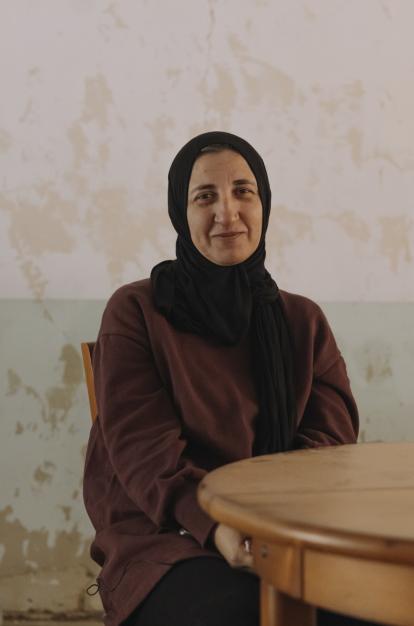
That day, the water forced the door open and flooded their garage. Ionela and her son entered when it had already turned into a dreadful swimming pool. It was a moment she will not easily forget: “The doors were broken, the fridge was already floating, there were things everywhere. Suddenly, there was a loud noise and a wave came rushing in and knocked me down. Since my little boy was ahead of me, he didn’t notice until he turned around. He grabbed me and started crying.” They went upstairs and spent the whole night on the terrace. When dawn broke, they saw that the wall separating their house from the neighbour’s had collapsed. They lost sofas, tables, wardrobes, a bed… The water swept away everything.
In addition to material losses, the DANA has had a significant emotional impact on those who lived through it. Ionela explains that her youngest daughter and she are the most affected in their family. “At night, she calls me to lie down with her; she doesn’t want it to rain…,” she says about her 10-year-old daughter. She adds that a few days ago, when she saw people running to catch a bus, she became very anxious and started crying because she thought the water was coming back again.
“People are in very different situations. What we do see in all of them is an extremely high level of stress and anxiety,” explains Vanessa Fernández, the head of social and labour market inclusion programmes at the Nova Feina Foundation, an organisation that usually focuses on this type of integration for vulnerable individuals, but in response to the cold drop, has turned its attention to providing humanitarian aid to those affected.
“The basis of our intervention is psychosocial support and the coordination of resources to meet people’s needs,” says Vanessa, who is also a resident of Catarroja and fully committed to helping her community. “We’re in a process of rebuilding from scratch, not of houses, but of lives. It’s tough,” she reflects.
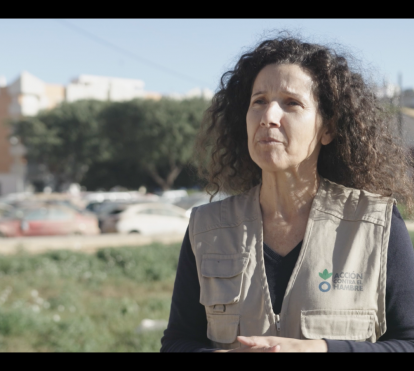
Following the disaster, Nova Feina began by distributing water and boots in the early days. Now, it also provides household appliances to those who have lost them, like Ionela, and acts as a link between other organisations and individuals offering assistance: “Our job is to match the needs of families with the available resources provided by volunteers, Nova Feina and the entire network.”
The organisation is carrying out this initiative with the support of the ”la Caixa” Foundation, which is backing the project through its special call for proposals to address the DANA emergency. “Here, the local authorities are overwhelmed, so we all have to be part of the social services,” concludes Vanessa.
Another organisation contributing to meeting the basic needs of the affected population, with the support of the ”la Caixa” Foundation, is Action Against Hunger. This NGO is applying its international experience in humanitarian aid to the catastrophe suffered in Valencia.
After initially focusing on distributing hot meals, cleaning supplies and torches, they are now working in two key areas: supporting local councils with the cleaning of streets, basements and sewers, and providing €1,000 aid to those in the most vulnerable situations.
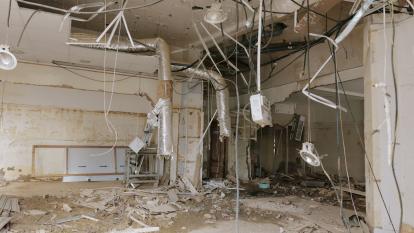
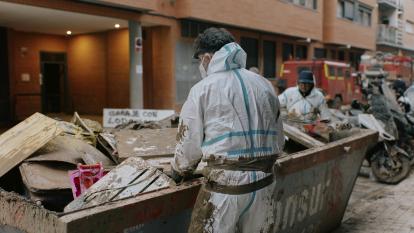
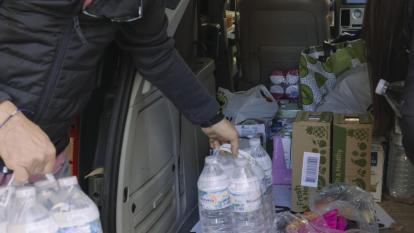
That money is given to them on prepaid cards loaded with the corresponding balance, which they can spend as they see fit. “The needs are numerous. We’re seeing a serious housing problem: they’ve lost not only part of their homes, but also the most basic belongings. So a lot of people are telling us: ‘This is for my home, this is for what I’ve lost’,” explains Dolores Marco, the regional representative of Action Against Hunger in the Valencian Community. But there are other situations as well: “There are people who have lost their jobs because industrial estates have been affected, and they tell us: ‘This is to pay the electricity bill, the water, the rent…’”.
These resources, which are given to people referred by local council social services, have been swiftly deployed to help address the urgent needs of the community. “When we talk to people and hand them the card, many of them tell us, ‘You’re the first financial aid we’ve received.’ That evokes a deep sense of emotion and satisfaction for a job well done,” says Dolores.
She and her colleagues are finding gratitude among a population that has been deeply affected emotionally: “People are generally in deep shock. Emotions seem to be floating in the air.”
The Carena Association is focusing on addressing the emotional aspect of the emergency. This organisation, which has been part of the Comprehensive care programme for people with advanced diseases of the ”la Caixa” Foundation since 1996, works in end-of-life and bereavement situations in Valencia. Like the other associations that participate in the programme, following the DANA, it made its psychologists available to those affected.
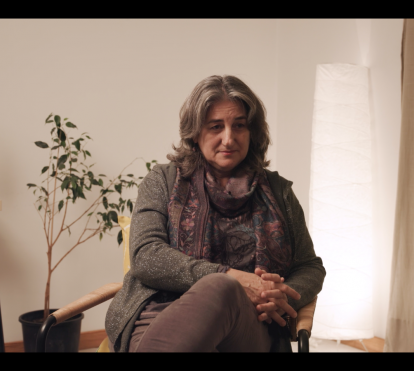
“Many of the patients and family members who have now been affected by the DANA were already under our care,” explains Silvia Fernández, a psychologist at the organisation. “It’s no longer just about coping with their illness; now they’re also facing new needs arising from the highly traumatic experience of the flooding,” she adds.
In addition to their usual patients, Carena is providing support to people in general who have been affected by the cold drop. According to Silvia, these individuals are going through different phases. “At first, the emotional experience is more marked by shock. Some respond with a need to express and release their emotions, while others experience it through emotional blocking,” she explains.
She explains that there is “a second phase where the emotional experience is more related to grief.” It is a stage involving “pain over certain losses because, even though they’re material, they are deeply tied to each person’s life experiences – it’s like a biographical rupture.” She adds that it is also a time for “appreciating the positive aspects”. “Even though they’ve lost many things, they place great value on being alive and being able to help other people. Many patients are committed to supporting others, which also means postponing their own emotional processing.”
This leads to the third phase, “characterised by post-traumatic stress”. “I believe we haven’t reached that phase yet, and this is where we’re now beginning the work of identifying needs in the area,” Silvia explains. And she reflects: “This will take a long time; many people still have a lot to process.”
There is a particularly vulnerable group that has also been affected by the DANA: children. Many have experienced dramatic situations that have had a significant emotional impact. Juan Miguel, a resident of Sedaví and father of three children aged 4, 9 and 11, shares: “The youngest always asks why this happened, why the water did this. The middle one has been affected a little more emotionally; he seems more worried. And the eldest has focused on her books and studying, and hasn’t yet opened up much to tell us exactly what she thinks about it.”
All three attend one of the safe and child-friendly spaces set up by Save the Children, in collaboration with the ”la Caixa” Foundation, in some of the towns devastated by the storm. “These are spaces where children living in affected areas can play, have fun and interact with other children,” explains Maribel López del Castillo, head of Save the Children’s emergency protection response for the DANA.
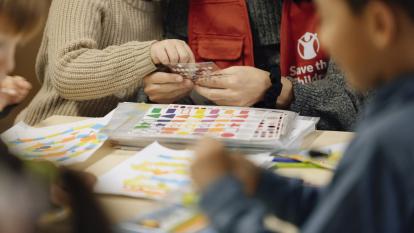
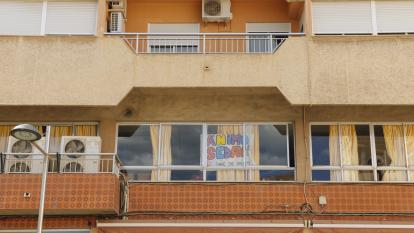
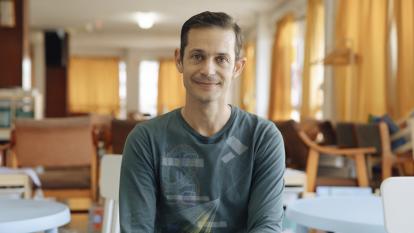
“Through activities, expression and creativity, we work on emotional management: identifying what they’ve experienced and how they’ve felt, and providing them with tools and resources. Above all, ensuring they feel they have a space where there will be people who will listen to them, support them and guide them through this process,” she explains.
“Many of them have experienced that when they leave their affected area, either because they’ve gone to other centres or stayed with other family members, they feel that when they talk about what happened to them others don’t understand because they haven’t lived through it. So, in these spaces they find someone who has been through the same thing, a friend or a companion, and they’re also supported by professionals who offer guidance, advice and a listening ear,” explains Maribel. The children they care for are suffering the psychological impact of the disaster: “We’re seeing many cases of night terrors, children who go back to sleep with their parents, nightmares and quick reactions of crying or anger…”.
A team of psychologists deals with these situations and provides guidance to both the children and their families. “Helping them understand the process and what they’re going through is essential so that, when they leave, their home can also be a safe space, because they have that guidance and support,” says Maribel.
Save the Children is part of the CaixaProinfancia programme, which works in a network with other social organisations to tackle child poverty. One such organisation is the Babhel Project, an initiative linked to Cáritas that provides educational support and healthy leisure activities to children in the La Torre neighbourhood, one of the most vulnerable areas in Valencia, which has been heavily affected by the DANA.
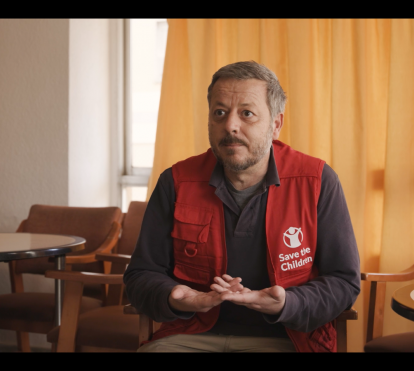
There, the teams from both organisations have joined forces to strengthen the service that the Babhel Project was already providing before the floods, increasing the number of primary school students supported from 28 to 73, in addition to another 20 secondary school students. “Many of the families living here were already at risk of social exclusion. With this situation, things have worsened: many have lost their homes or the few resources they had,” explains Miriam Guillot, a social worker at the Babhel Project.
She highlights that the children in the neighbourhood “need more recreational spaces because there were already very few, and now what they had is gone.” And, most importantly, “they need care and affection; all of them need attention.” “Many children went 20 days without seeing their classmates or communicating with other children,” Miriam explains.
Mónica, the mother of two girls who attend this service, confirms that the situation has been difficult for her daughters: “In the first few days, they were nervous, very much so. They didn’t want to eat. Opening the window and seeing the spectacle is tough. Seeing cars piled up, seeing tonnes of mud... We couldn’t go down to the courtyard because the water reached up to the roof. We had no electricity, no water.”
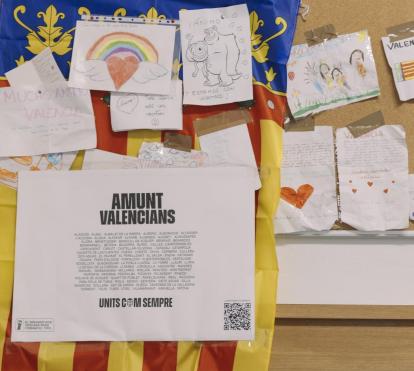
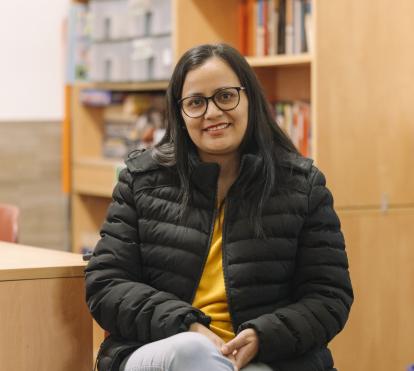
Marisela, the mother of another nine-year-old girl who attends the centre, confirms it: “When the water started rising, she said, ‘Mummy, we’re going to drown!’ It rose so much, and she had a panic attack. I had never seen her like that, and seeing her that way made me very sad. It was terrible.”
Both mothers agree that attending the Babhel Project and Save the Children space has been a great help for their daughters. “It has helped her a lot. Before, she was quieter, very much in her own world. Now she tells us, ‘Mummy, we did this, they helped me with that...’ She’s always very eager to do things. She likes being here,” Marisela explains. Mónica’s view is similar: “Both the older and the younger one are very happy, and so am I. I’m incredibly grateful.”
In general, the people from the southern outskirts of Valencia describe a disaster from which it will take a long time to recover. Yet many faces also light up when they speak of the spirit of solidarity that fills these communities: the contributions of social organisations working on the ground to help the most vulnerable, the volunteers who have travelled hundreds of kilometres to lend a hand… and the affected residents themselves, who sometimes even decline the help offered to them so that it can be given to their neighbours instead.